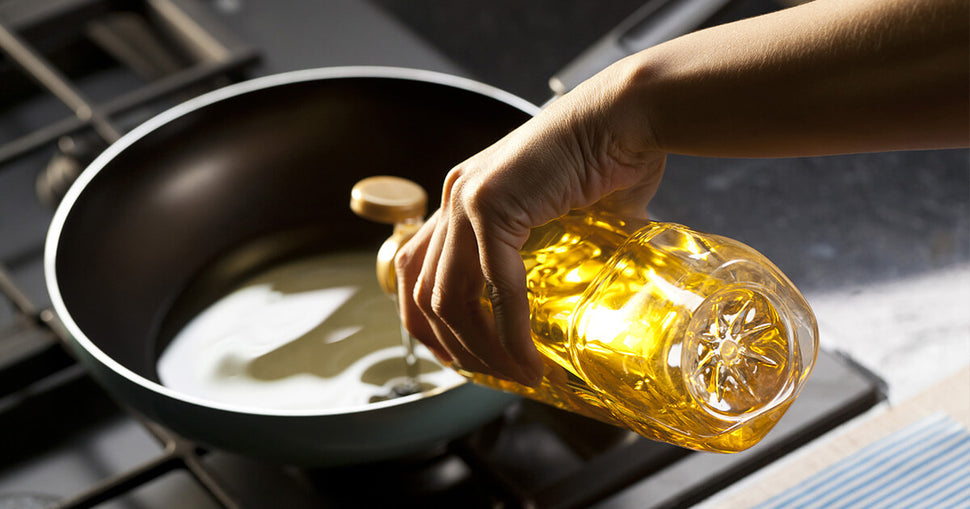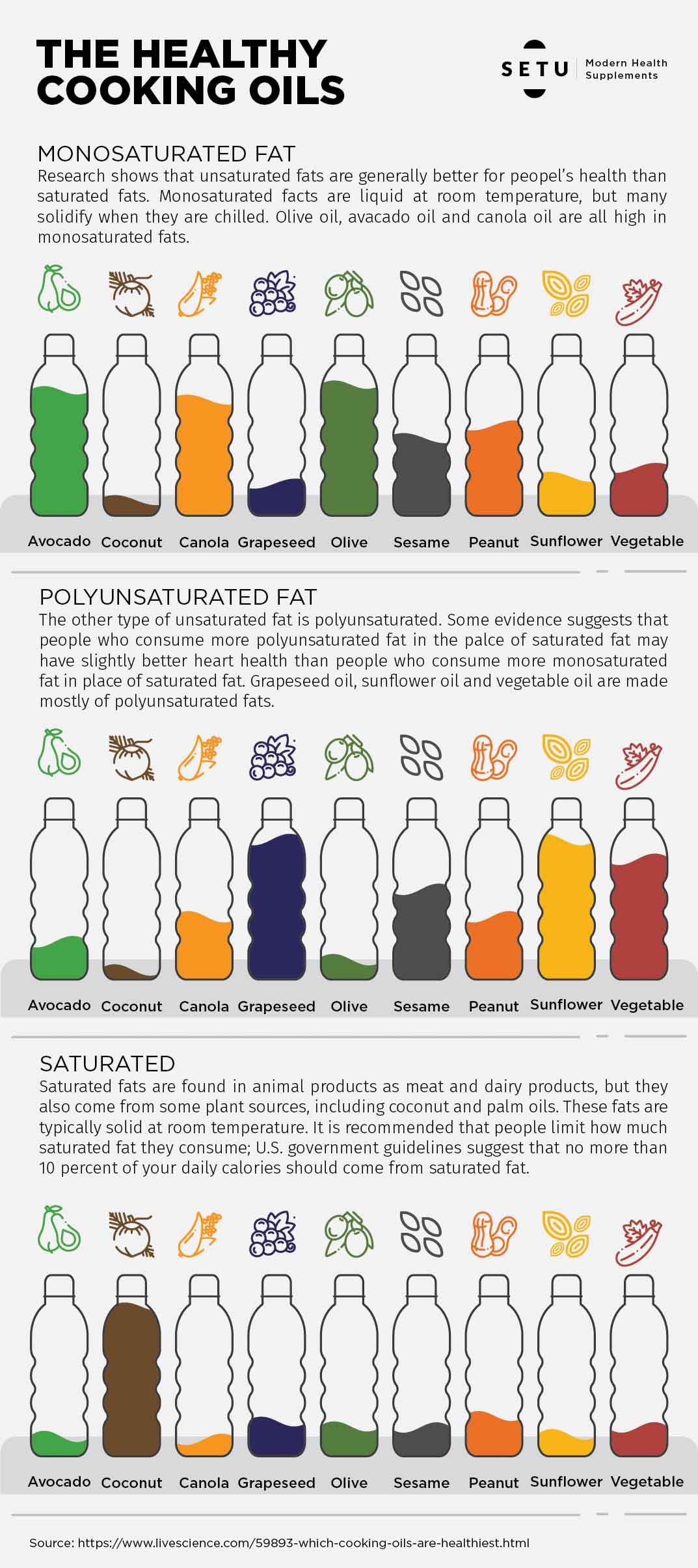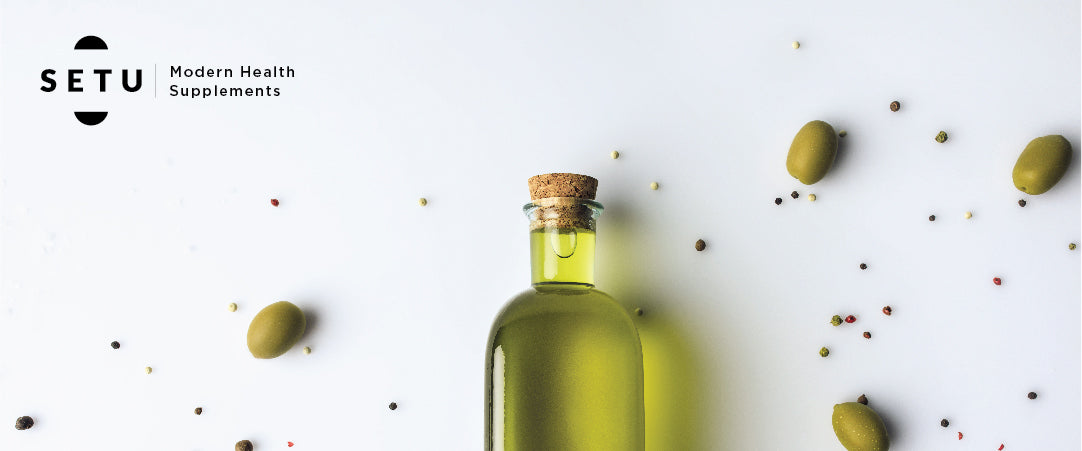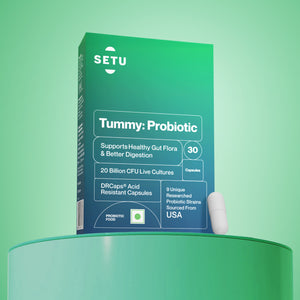A Healthy Cooking Oil Guide
29 Jun 2019
If you have stepped into a supermarket recently, in all likelihood you would have noticed that cooking oils are having a major culinary moment. When presented with numerous varieties, it can be hard to determine which one is good for you and which one isn’t.

If you have stepped into a supermarket or a grocery store recently, in all likelihood you would have noticed that cooking oils are having a major culinary moment. When presented with numerous varieties, it can be hard to determine which one is good for you and which one isn’t.
However, there is no right or wrong answer, as it depends on the contents of the oils. When selecting, there are a few factors that should be considered, like fatty acid content, smoke point, and purpose of use.1
Choosing the right cooking oil can make a world of difference to your health. There have been many studies that correlate the fatty acid content in oils with cholesterol levels, cardiovascular and skin health, and fitness and wellness.2
In this article, we’ll help you understand how you can choose the best cooking oils for you, but first, let’s understand the different types of fats present in different types cooking oil.
Different Types of Fats
Saturated Fatty Acids (SFA) is a type of fats in which the carbon chains have predominantly single bonds that are filled with hydrogen atoms 3, and this makes it resistant to oxidation. That’s why oils with high SFA content are good for deep frying.
Monounsaturated Fatty Acids (MUFA) are fatty acids that have one double bond of fatty acids, while the remainder of the carbon chains is single bonds. MUFAs are proven to reduce cholesterol levels, which in turn reduce the risk of heart diseases. In MUFAs, the hydrogen atoms aren’t as densely packed as in SFAs, hence they have a lower smoke point. 4 Having said that cooking oils with a high percentage of MUFAs are recommended for their nutritious values.
Polyunsaturated Fatty Acids (PUFAs) miss many hydrogen atoms and have two or more bonds of fatty acids. PUFAs can aid in reducing bad cholesterol, which in turn lowers the risk of heart diseases.5 Cooking oils rich in PUFAs provide essential fats like Omega-6 and Omega-3 that our bodies cannot produce by themselves. In recent years, the concept of an ideal ratio of Omega-6 to Omega-3 fatty acids in the diet was developed due to data that shows that the intake of Omega-6 has increased while Omega-3s have decreased. 6 This posed a problem because while Omega-6 are pro-inflammatory, Omega-3 is anti-inflammatory. Scientists have proven that diets that are balanced in Omega-6 and Omega-3 (1:1) reduce inflammation.7 Research has suggested that inflammation contributes to multiple health risks including cancer, cardiovascular diseases, mental wellness, and arthritis. PUFAs should be used in smaller quantities due to the free radicals that are produced during cooking.
In essence, monounsaturated fats and polyunsaturated fats should be the highest, while trans fats and saturated fats should be avoided as much as possible.

REFINED VS. UNREFINED COOKING OILS
The major difference between unrefined and refined processes of extracting oil is how naturally produced they are. Refined oils go through a rigorous and intensive mechanical and chemical process of extraction. Some of these processes include flavour neutralizing, deodorizing, bleaching, and almost all these processes include an acid called hexane, which can be hazardous for health.9 This is done to mostly polyunsaturated fatty acids to enhance flavours, increase smoke point temperatures and lengthen shelf life. Sometimes, PUFAs are sent through a hydrogenated process, forcing hydrogen atoms into oils under high pressure.10 Once this process is completed, it removes the fatty acid chains and turns them into trans fats. Almost any doctor or scientist will advise you to lay off products that include trans-fats, as they can have a severe impact on cardiovascular functioning.11
Unrefined oils are filtered very lightly, mainly to get rid of large particles. Unrefined oils are more pronounced in flavours, colours, and fragrance and may appear cloudy. Studies have shown that unrefined oils have higher nutrient values, but a shorter shelf life and are usually refrigerated.12 When exposed to high temperatures, they produce a rancid smell.
COOKING OILS
Desi Ghee (Clarified Butter): If you live in India, you may know the importance of ghee in our everyday lives. This product is basically free of the milk solids, which are found in butter and therefore, have a higher smoke point. Research indicates that consuming a spoonful of ghee in our foods also keeps inflammation at bay. A study published by the Indian Journal of Medical Research suggests that when ghee protects the body from carcinogens in the liver.14 While ghee contains a significant amount of saturated fats (65%), it has a high level of MUFAs, which is something our body requires. Ghee can be used for crisp sautéing or spread lightly on Indian bread and cooked rice. Ghee can withstand high temperatures and is great for cooking Indian curries.

Avocado Oil: Avocado Oil is super rich in monounsaturated fats (70%) and it has one of the highest levels of monounsaturated fats amongst other cooking oils. Similar to olive oil, it is low in polyunsaturated fats (20%), which means that it has a high level of healthy fats.15 Avocado oil is great for drizzling on top of salads or dips, and due to its ability to withstand high temperatures, it can withstand light sautéing, grilling, and roasting.
Canola Oil: It has the least saturated fat content among all cooking oils. There are many studies that prove that canola oil that hasn’t been refined extensively can reduce the risk of heart diseases and strokes, which makes it a healthy cooking oil. It is rich in MUFAs (62%) and can be used in a variety of ways, whether that’s baking, stir-frying, deep frying, or sautéing. The best kind of canola oil is one that’s free of GMOs.16 It contains a high amount of Omega-3 than most vegetable oils and can reduce inflammatory illnesses like cancer and cardiovascular diseases.

Coconut Oil: With the rise in popularity of coconut oil in recent years, it has been promoted as an alternative to butter. Unrefined coconut oil is the best and remains solid at room temperature. However, coconut oil has a high level of SFAs (90%) and it’s recommended to use it sparingly.17 There is little research that suggests that coconut is actually good for heart health.18
Peanut/Groundnut Oil: A flavorful oil with a nutty aroma and light colour, peanut oil can withstand high heat and is a good choice for Asian inspired cooking. It brings out the flavours of the ingredients and is widely used in stir-fries and for sautéing. Peanut oil contains a high percentage of MUFAs and PUFAs. 19 Its saturated fat content is higher than some oils, but that’s nothing to worry about. Peanut oil has many health benefits ranging from reducing cholesterol levels to fighting the signs of aging. 20

Extra-Virgin Olive Oil (EVOO): Widely popular in the Mediterranean diet, olive oil is the most common type of oil used in cooking. Extra-Virgin Olive Oil comes from the first pressing of olives, which results in an oil that is strong in flavour and has a fruity aroma. EVOO is less processed and usually unrefined, which means that it has been extracted the same way an olive tree would naturally extract oil from its seed. It is typically more expensive than other oils and is rich in antioxidants.21 Olive oils have the highest content of MUFAs (77%) and are rich in antioxidants called polyphenols, which scientists have linked to heart health.22 It’s a good option for sautéing vegetables, light pasta, dipping bread and margination of meats and vegetables.
While there are many options available, I tried to keep the list of oils as quaint as possible. Primarily because living in India, these are the most accessible oils available at a decent price. One should not have to climb mountains and move seas to find the “perfect” cooking oil. In any case, here is a table of oils with similar heart benefits that can be used in various methods.
Sautéing: Olive oil, EVOO, Ghee Roasting: Pure Olive Oil or Organic Canola Oil, Ghee Stir-frying: Safflower or Canola oil, Sesame oil, Peanut/Groundnut oil. Grilling: Safflower or Canola Oil Dips and Dressings: EVOO, Avocado Oil, and Sesame oil Flavouring: Flaxseed oils and Sesame oils. Oils that are heat resistant are perfect for this as they won’t make your food oily. Baking: Refined Coconut oil or Organic Canola Oil Deep Frying: Canola or Peanut/Groundnut Oil
| Sautéing:Olive oil, EVOO, Ghee | Roasting: Pure Olive Oil or Organic Canola Oil, Ghee |
| Stir-frying: Safflower or Canola oil, Sesame oil, Peanut/Groundnut oil. | Grilling: Safflower or Canola Oil |
| Dips and Dressings: EVOO, Avocado Oil, and Sesame oil | Flavoring: Flaxseed oils and Sesame oils. Oils that are heat resistant are perfect for this as they won’t make your food oily. |
| Baking: Refined Coconut oil or Organic Canola Oil | Deep Frying: Canola or Peanut/Groundnut Oil |
Table: Versatility of Oils and the best ones to use
With many cooking oils to choose from, there are only a few that you should aim to grab. Cooking oils come in different colours, flavours, and sizes, and just like we are prone to checking the nutritional contents of any packaged item – we should consider reading the fat contents of oils too. Lastly, products which are the most organic and unrefined are the best.

Key Takeaways:
- When buying cooking oils, always turn to the back and check the fatty acid contents.
- Monounsaturated and Polyunsaturated content should be higher than saturated fatty acids.
- Always opt for an organic and unrefined version of any cooking oil.
- When cooking, one should consider what they are planning to prepare and the smoke points of each oil.
- While the healthy fats of each oil are listed, it is not meant to be consumed like we consume calories. The first rule of eating: “Everything in Moderation”.
- Always say no to trans-fat.
- Always opt for glass packaging over plastic and tin bottles.
Tummy: Probiotic – Multi Strain Formulation
- ₹1,134
- ₹1,134
-
₹1,600 - ( 29% OFF)
Categories
- Choosing a selection results in a full page refresh.
- Press the space key then arrow keys to make a selection.
this is the sidecart











